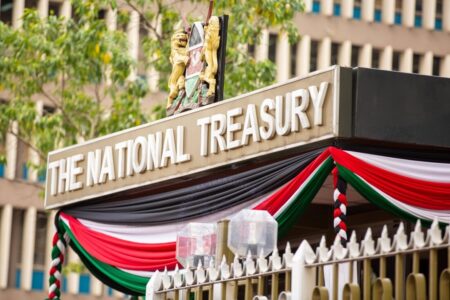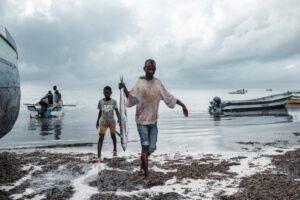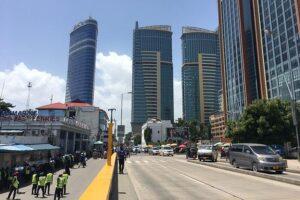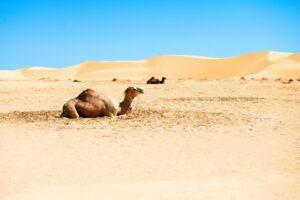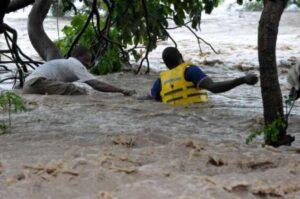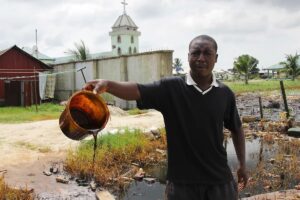- Abu Dhabi radiates optimism as over 300 startups join AIM Congress 2024
- TLcom Capital Raises $154 million in Funding to Boost Its African Growth
- Africa’s $824Bn debt, resource-backed opaque loans slowing growth — AfDB
- LB Investment brings $1.2 trillion portfolio display to AIM Congress spotlight
- AmCham Summit kicks off, setting course for robust future of US-East Africa trade ties
- Why the UN is raising the red flag on the UK-Rwanda asylum treaty
- Portugal’s Galp Energia projects 10 billion barrels in Namibia’s new oil find
- Wärtsilä Energy offers tips on how Africa can navigate energy transition and grid reliability
Premium
- Kenya’s forex reserves dipped to $6.2 billion on May 19, an eight-year low, before a slight improvement to $6.4 billion on May 26.
- At $6.4 billion, Kenya’s reserves are just 3.60 months of import cover, which is below the Central Bank of Kenya’s desired target.
- What’s more, the reserves are below the East Africa Community preferred threshold of 4.5 months of import cover, hence exposing the country to high volatilities in the global market.
A dip in export earnings, coupled with reducing diaspora inflows at a time of huge debt repayments have left Kenya grappling with low forex reserves, raising concerns on the health of East Africa’s economic powerhouse.
The low forex reserves are further compounding the dollar shortage problem that has been gripping importers for months. Importers, mainly in the manufacturing and the energy sectors, have been struggling to secure the greenback to replenish their suppliers.
Kenya’s forex reserves
…According to SWIFT, African regions with strong integration saw increased use of local currencies and decreased use of hard currencies such as the US dollar. For instance, the use of the West African franc by the eight countries in the West African Economic and Monetary Union has overtaken the South African rand and the British West African pound.
This implies that boosting the use of regional currencies will shield the African trade market from adverse global conditions associated with the performance of US dollars. However, further regional coordination remains necessary to build a continental payment system that encourages the use of local correspondent banks and local currencies. These moves can help in managing currency depreciation to boost African trade finance. …
Into a menacing economic quick sand African economies have been sinking, taking hefty blows from numerous unprecedented challenges birthed by the overarching global crisis. The status quo has instigated a clarion call to cushion them from dipping further beneath the horizon, by casting different viable iron rods, as the ‘one shoe fits all’ approach is not feasible due the dynamic nature of African economies. Inarguably, Africa has not been left unscathed amid the ongoing global ‘polycrisis’, as described in the 2023 World Economic Forum’s (WEF) Global Risks Report, to mean a cluster of related global risks with compounding effects, such that the overall impact exceeds the sum of each part.
In light of this, on day three of the WEF in Davos, Switzerland, UN Secretary General António Guterres in his speech, stated that at present the world faces “a category five” storm of challenges that need urgent action. These include …
Africa’s blue economy prospects
What if Africa could farm its oceans and reap benefits from it? Yes, research findings from African Natural Resources Centre (ANRC) in collaboration with African Development Bank (AfDB), ‘Prospects for developing green aquaculture in Africa 2021’ report brings a whole new depth to aquaculture in Africa.
The continent is growing fast, and it could grow more sustainably if it utilizes its most crucial resource, natural wealth. The report highlighted that the aquaculture sector is slowly growing and it shows a strong potential for expansion.
The world aquaculture landscape is showing promise. The Food and Agriculture Organisation (FAO) 2020 report showed that farmed seafood globally produced 82.1 million tonnes of aquatic animals in 2018—which is equivalent to 96.4 tonnes of fisheries catch.
“Global aquaculture has been growing at an average annual rate of 5 per cent over the past 20 years and this growth is expected to …
No family wants to be stuck in their home and yet starve due to food security systems being shaken by the COVID-19 pandemic which has taken more than 40 million people’s lives and affected over 200 million worldwide.
That scenario could become occurring dangerous reality if food security concerns are not addressed immediately, as reports from multiple food security monitoring groups such as the Alliance for a Green Revolution in Africa (AGRA) suggests that East Africa will “remain a food insecurity hotspot as new COVID-19 variants continue to spread”.
The pandemic and its new variants bring more pressure to the fragile food security systems and unstable economies of East Africa, as precautionary measures weigh in on-farm operations, weaken supply chains and increase cross-border trade tensions.
Even before the pandemic shocks, the African food system had a few setbacks in its path which included the inadequate capability to analyze risks and …
The central bank of Tanzania (BoT) has painted the state of the economy on a different canvas.
BoT’s economic bulletin for the quarter ending June 2021 and the monthly economic review for July 2021 indicates Tanzania has been on a very promising trajectory for the past two years, shown by its dedication towards building a resilient industrial economy and self-reliance through steady ownership and control of natural wealth.
According to the BoT, in the quarter ending March 2021, the economy grew by 4.9 per cent compared with 5.9 per cent in the corresponding quarter in 2020 and four sectors were noted to have contributed greatly, namely construction, transport, agriculture and storage.
Former hotbed sectors and speedy forex contributors such as accommodation and restaurants were gravely impacted by the pandemic, slapping a -1.7 per cent performance for 2021.
By the end of March 2021, the growth and expansion of telecom in …
What is Tanzania without the Serengeti? One cannot mention Tanzania’s beauty without alluding to the amazing landscapes of Mikumi or the exhilarating hiking experience of the Kilimanjaro. All these make up the tourism packet—perhaps one of the greatest in Africa— that Tanzania has in its economic arsenal.
Tourism is Tanzania’s notable primary foreign exchange earner, which brought in more than $2.4 billion in 2018, an increase of 9.1 per cent that time—from $2.2 billion in 2017 (Tanzania Invest).
On the other side, last year forex earnings dropped to a 10-year low during the year ending October 2020, contributed by the travel restrictions as a response towards curbing COVID-19 infections. Tanzania saw only $1.2 billion in its forex compared to $2.5 marked in the year ending October 2019, according to information from The Citizen.
In its pursuit of tourism glory, Tanzania has not been alone. Rwanda, Kenya and Uganda are right …
Africa is great and can be greater if its potential is harnessed strategically. This comes in many forms including placing enough recipes for Africa’s youngest working-age population to exploit different sectors of the economy.
Numbers paint a rather interesting picture. Between the year 2015 and 2035, the region’s working-age population will grow by approximately 450 million people, which is about 3 per cent per annum.
Meanwhile, the African Development Bank (AfDB) one of Africa’s vibrant development financiers noted that “youth are Africa’s greatest asset” and could support increased productivity and stronger, more inclusive economic growth across the continent.
Meanwhile, the International Labor Organization (ILO) pointed out clearly that unemployment rates have remained acute; the most unfortunate situation is that in sub-Saharan Africa, out of the 38.1 per cent of the estimated total working poor, 23.5 per cent is made up of young people.
ILO’s Global Employment Trends for Youth 2020 …
African cities are prone to flood damage, which can be widespread leaving hundreds homeless, communities and economic systems destabilized and infrastructures costing millions to build, destroyed.
All these issues factor in an uncomfortable reality that African communities cannot afford. According to a 2018 publication by The Conversation, floods cost Tanzania up to $2 billion annually, while tracing back to 2012, Nigeria—Africa’s top economy suffered its largest floods in the century which wiped out assets worth nearly $10 billion. …





